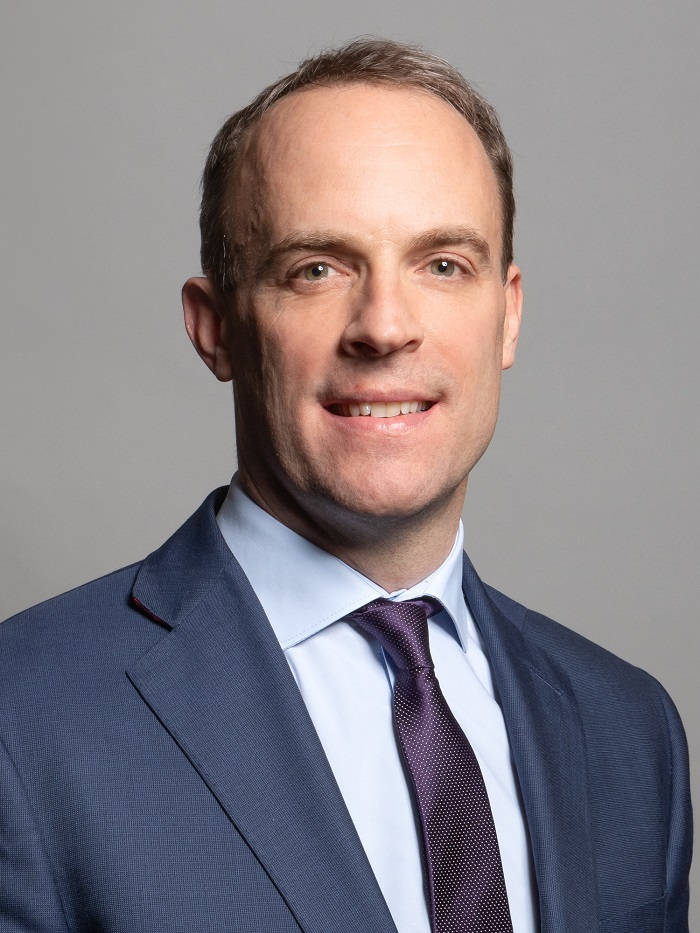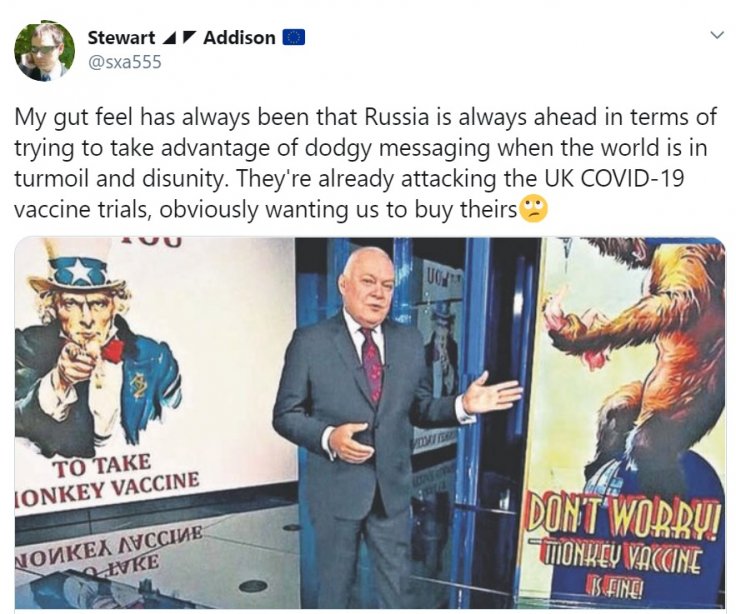After Sputnik V, Russian authorities have recently given regulatory approval to its peptide-based, EpiVacCorona, developed by Vector Institute in Siberia after early-studies. Instead of focusing on their own vaccine development process, Russia started a campaign to discredit Oxford's COVID-19 vaccine.
The country is now sharing social media posts claiming that the AstraZeneca Coronavirus vaccine will turn humans into monkeys. But UK's foreign affairs minister Dominic Raab blasted Moscow, saying that "It's a shabby piece of disinformation." After the propaganda posts started to appear on social media platforms, Raab said that this incident "is very serious because it is an attempt to disrupt the attempts to find a safe vaccine."

'Don't Worry, Monkey Vaccine Is Fine'
Russia began spreading lies about the Oxford vaccine at a time when many experts raised concerns about already approved Russian vaccines at an early stage. One of these propaganda posters features an image from the iconic character 'King Kong' wielding a syringe with a text, "Don't worry, monkey vaccine is fine," while the other one, depicting 'Uncle Sam', says "I want you to take monkey vaccine."
But the UK foreign secretary Raab tore into these horrific campaigns and said that it could cost lives. He told during BBC 4's program that any attempt to spread fake news about the novel Coronavirus, and particularly about the vaccines, "when we're trying to come together as an international community to resolve a global pandemic is utterly deplorable."

Vaccine Development
Dozens of companies, including biotech start-ups to big pharmaceuticals, are racing to develop a safe and effective Coronavirus vaccine. Along with Moderna and Pfizer, the vaccine jointly developed by AstraZeneca and Oxford University is one of the world's leading contenders to combat COVID-19.
MI5 director-general Ken McCallum said it is quite clear that the global prize of having a first effective Coronavirus vaccine "is a large one, so we would expect that a range of other parties around the globe would be quite interested in that research." Without taking any specific names, he also warned that there was a range of threats against the vaccine development process.
According to him, there are two bits that are under consideration "attempts either to steal unique intellectual property that's been generated in that research or potentially to fiddle with the data." The boss of the security service also noted that "the second risk we've got to be alive to is the possibility that the research is still high integrity and sound, but that somebody tries to sow doubt about its integrity."
Just a few months ago the UK's National Cyber Security Centre (NCSC) said that Russia backed hackers were trying to steal Coronavirus vaccine and treatment research from institutions around the world.
However, earlier this week the director of the Oxford vaccine group, Andrew Pollard said that the vaccine trials are going well. But even if scientists successfully develop an effective vaccine, there will be a possibility that the fake news spread by Russia and other conspiracy theories could deter people from getting a vaccine shot.









